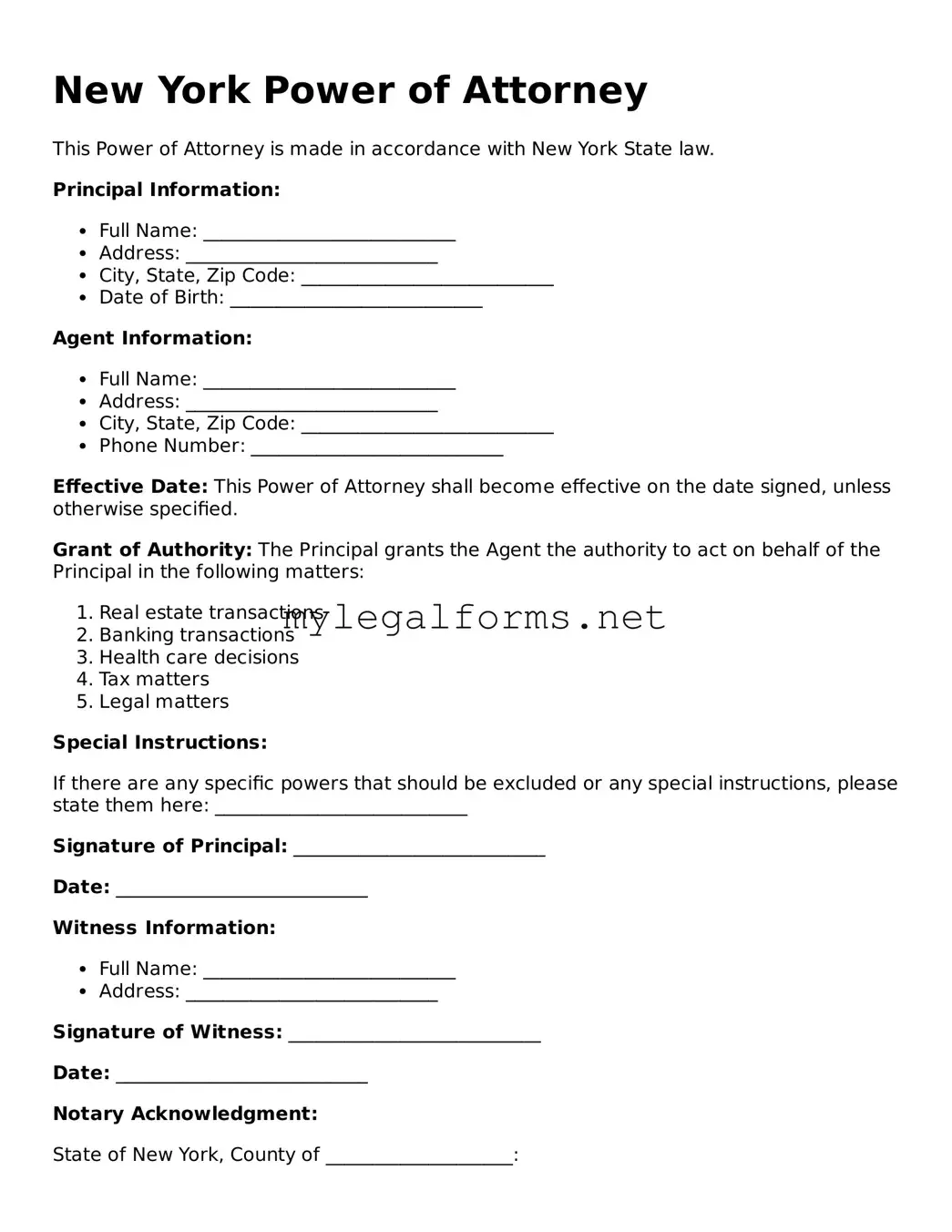Power of Attorney Document for New York State
The New York Power of Attorney form is a legal document that allows one person to grant another the authority to act on their behalf in financial and legal matters. This form is crucial for individuals who want to ensure their affairs are managed according to their wishes, especially in situations where they may become incapacitated. Understanding the nuances of this form can help individuals make informed decisions about their financial future.
Launch Power of Attorney Editor

Power of Attorney Document for New York State
Launch Power of Attorney Editor

Launch Power of Attorney Editor
or
⇓ PDF Form
Complete the form at your pace — fast
Finish your Power of Attorney online and download the final version.